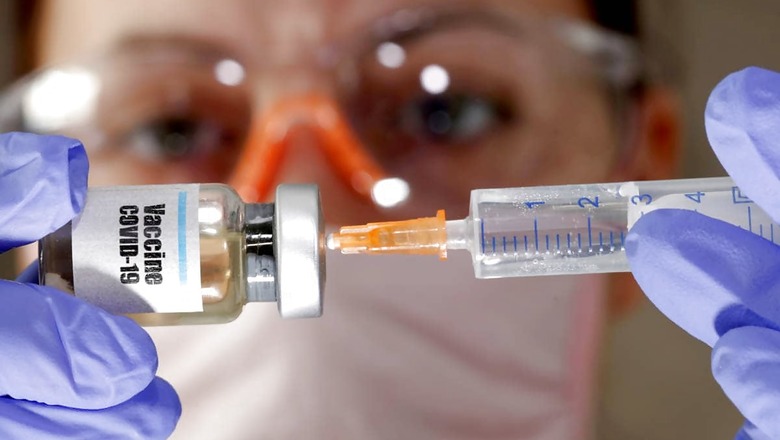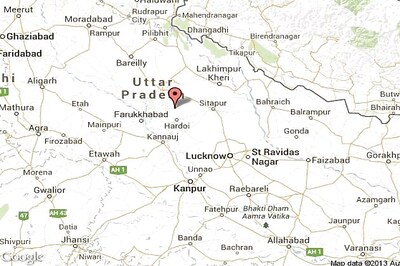
views
Covid-19 operational guidelines, a handbook shared by the Centre with states, details every single aspect of the gigantic drive that vaccinating against Covid-19 is set to be. News18 is in possession of the handbook that will serve as a gospel to states once the vaccination drive starts.
Who Will be Vaccinated First?
As per the operational guidelines drafted by the Centre and issued to the states, the following groups will get the first shot:
Healthcare Workers: Around 1 crore workers in the sector will get the first doses across India. This includes ICDS workers, nurses, supervisors, medical officers, paramedical staff, support staff, and students.
Frontline Workers: The 2 crore people in this group include personnel from the Army, Navy, Air Force, coast guard, certain teams coming directly under the home ministry, Assam Rifles, BSF, CISF, CRPF, ITBP, NSG, SSB, home guards, prison staff and disaster management.
Ministry of Housing: Municipal workers and state police would be in line. Municipal workers include sanitation workers, sweepers, waste collectors, cremation staff, and ground staff.
Prioritized age groups: Around 26 crore Indians fall in this category above the age of 50. Next would be 1 crore Indians who are under 50 but have co-morbidities. The age will be calculated based on January 1, 2021 as the cutoff date and anyone born on or before January 1, 1971 will fall under this category, the document says.
A Day at the Vaccination Site
A vaccine site, a stationary one for the healthcare workers, will see vaccinators work between 9 am to 5 pm, with up to 200 people vaccinated in each session. Monitoring these people will take up to 30 minutes wherein they will be kept under observation. Adverse events are anticipated and have been categorized in the document as follows:
– Minor AEFI (adverse event following immunization), self-limiting e.g. pain and swelling at injection site, fever, irritability, malaise, etc.
– Severe AEFI, which are non-hospitalized cases with increased severity which do not lead to long-term problems but can be disabling. Examples: Non-hospitalized cases of anaphylaxis that have recovered, high fever of more than 102 degrees, hypotonic hyporesponsive episodes, sepsis, etc.
– Serious AEFI that includes deaths, hospitalizations, clusters, disability, media reports/community/parental concern following vaccination.
Each vaccination site should be well stocked with the following: three printed copies of beneficiary list (wherever feasible), vaccine carrier with ice packs and additional vaccine carrier, adequate Covid-19 vaccines, adequate numbers of AD syringes and reconstitution syringes (if needed), sanitizer and masks, vaccine vial opener, hub cutter, screen for privacy, anaphylaxis kit, red, yellow & black bags, puncture proof blue container, waste basket, cotton wool tally sheet, IEC material, and hand washing facilities.
The handbook says that a day before vaccination, district authorities may undertake a random inspection of private sector sites to assess preparedness. The document also details the manner of placement that is expected at each of the sites. Social distancing is to be ensured and certain facilities like internet connectivity, drinking water and waiting room which allows for staggered seating should be ensured.
While most of the healthcare and frontline workers would be vaccinated at fixed session sites, vaccination of other high-risk populations may require outreach session sites, and mobile sites/teams.
5-MEMBER VACCINATION TEAM
As per the handbook, the vaccination team will consist of five members as follows: vaccination officer – doctors (MBBS/BDS), staff nurse, pharmacist, auxiliary nurse midwife, lady health assistant; anyone legally authorized to administer injection may be considered as potential vaccinator or vaccination officer. It says that at least one person (police, home guard, civil defence, NCC, NSS, NYK) will check registration status of beneficiary at the entry point and ensure guarded entry to the vaccination session. The second vaccinator is the verifier who will authenticate/verify the identification documents. The third and fourth vaccination officers are the two support staff who will be responsible for crowd management, communication and support to vaccinator.
It also makes mandatory the creation of the state control room, with participation of key officials responsible for cold chain, and partners including WHO, UNICEF and UNDP. It will have 24×7 telephone helpline. The document says that one district will get vaccine from one manufacturer to avoid mixing, and seeks demarcated responsibility of district, urban, and state task forces.
MULTI-DEPARTMENT ENDEAVOUR
The document says it should be a multi-department endeavor and over 20 dozen ministries must be involved in the process. For example, the department of power supply must ensure unhindered supply of electricity, the state AIDS control society will ensure hesitancy is taken care of. The animal husbandry department would support provision of dedicated cold storage equipment and facilities, if required. The department of food and civil supplies would be supporting provision of cold storage spaces and transport system, if needed. There would be biometric authentication at session sites.
Defence forces would be involved in support registration of armed forces’ beneficiaries and supply for vaccine delivery in hard to reach and security sensitive areas, liasoning with district administration for session planning and training of vaccinators in their system to ensure vaccination of their staff.
Co-WIN
The Covid-19 vaccine will be provided only to beneficiaries pre-registered in Co-WIN. The self-registration link on the Co-WIN website is essentially meant for the general population wherein an individual can register themselves by providing their basic demographic details like name, date of birth, permanent and current address, and details of co-morbidities if any. There will be no on the spot registration. The individual interested to register themselves will be required to provide their photo identity.
After vaccination of the beneficiary, Vaccination Officer-2 ticks the vaccination completion checkbox in Co-WIN system. The beneficiary will receive the SMS notification with a link for the date and time of subsequent dose. The state helpline “104” should be utilized to provide necessary information and guidance on Covid-19 vaccination.
The document also shows the government is prepared for theft and pilferage and asks for “stringent vigilance mechanism” to check the same. Any such activity should be immediately reported, and prompt police action should be initiated with clear accountability, it says.
Read all the Latest News, Breaking News and Coronavirus News here




















Comments
0 comment